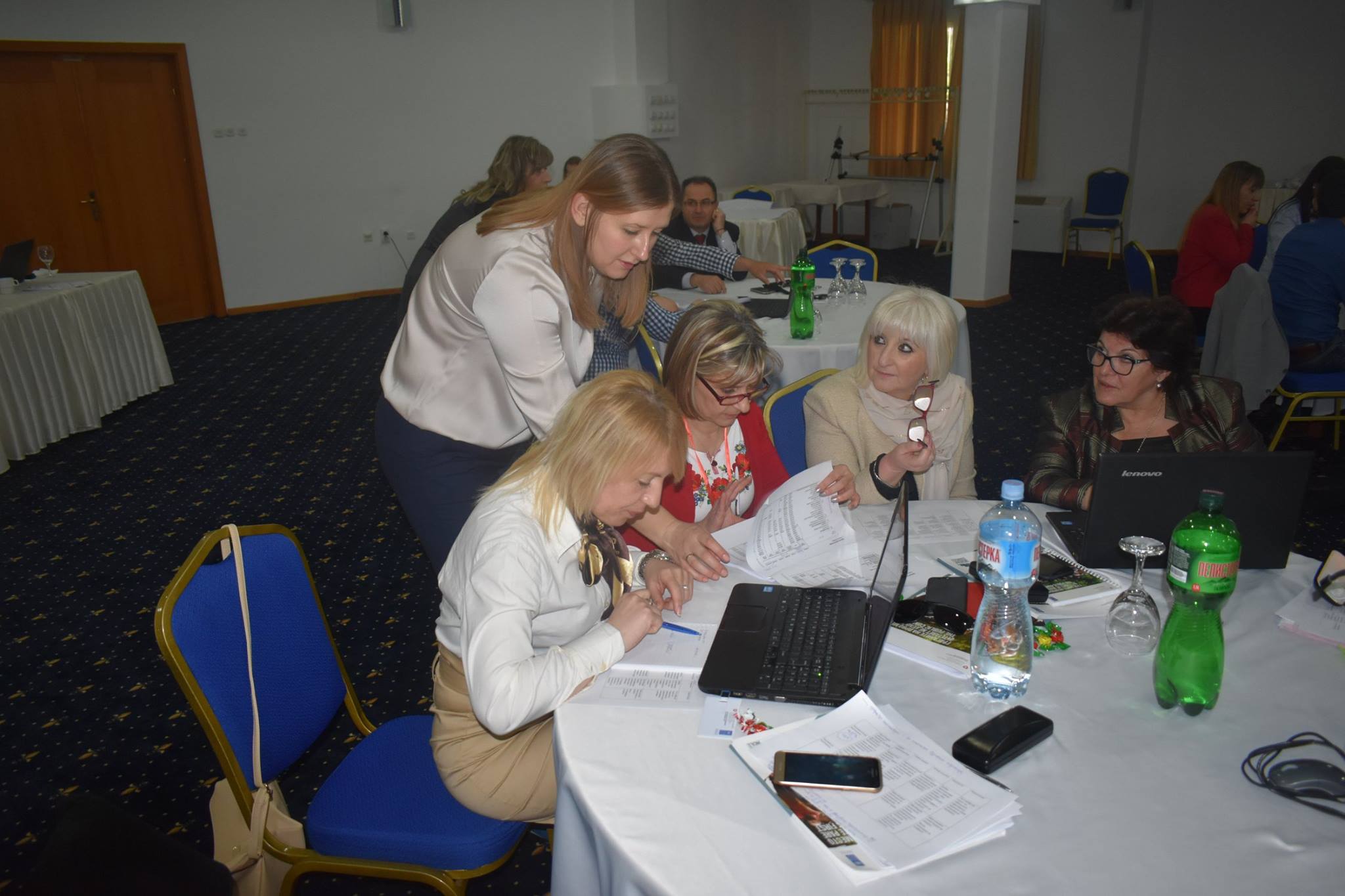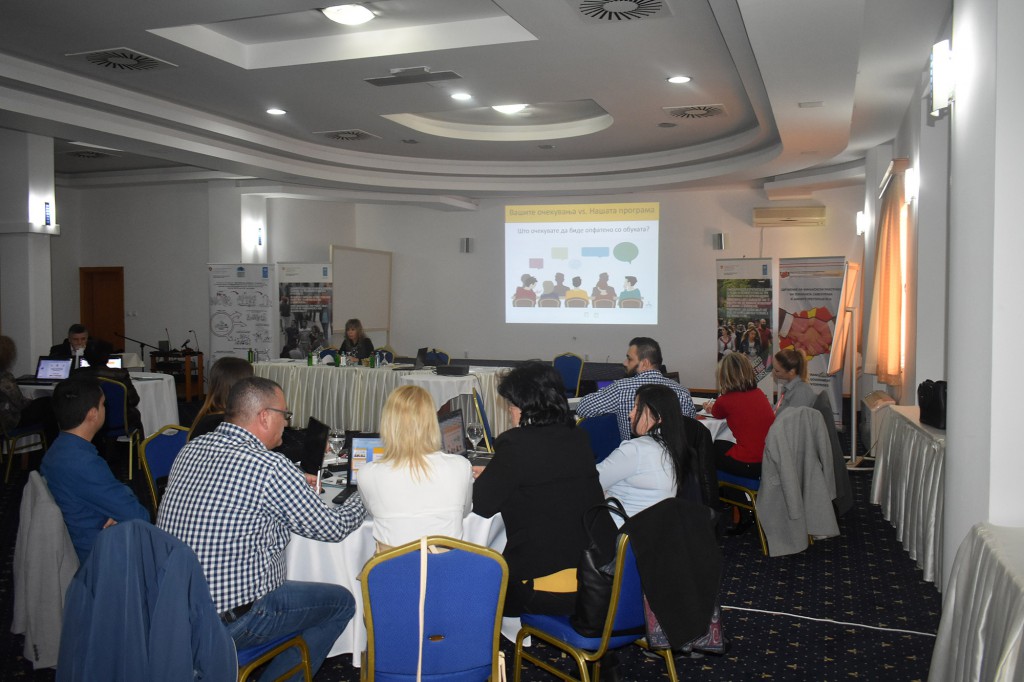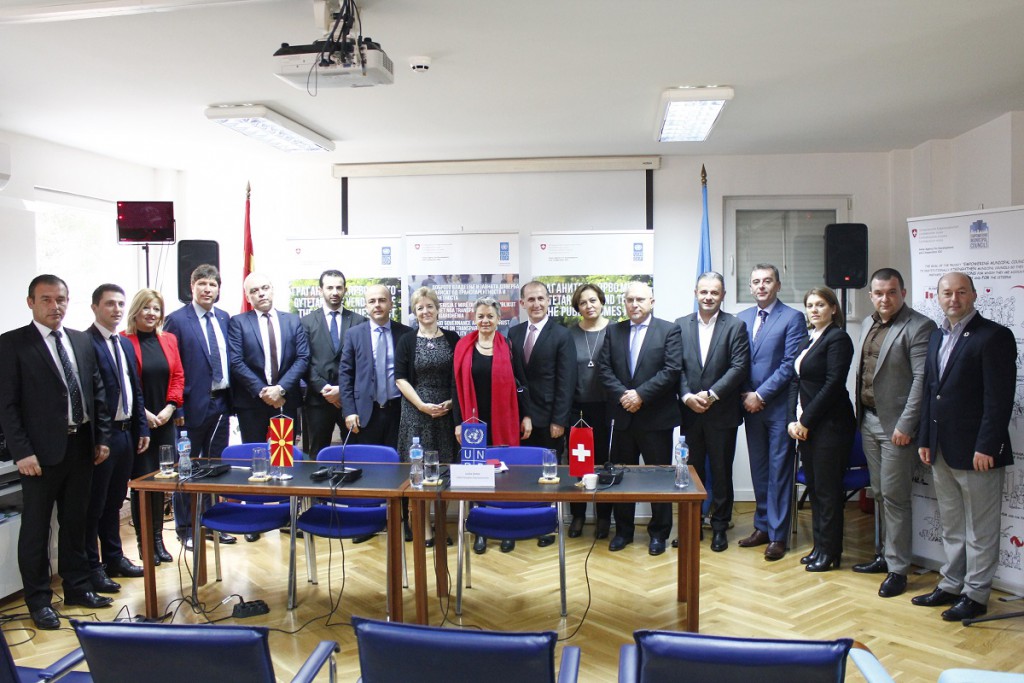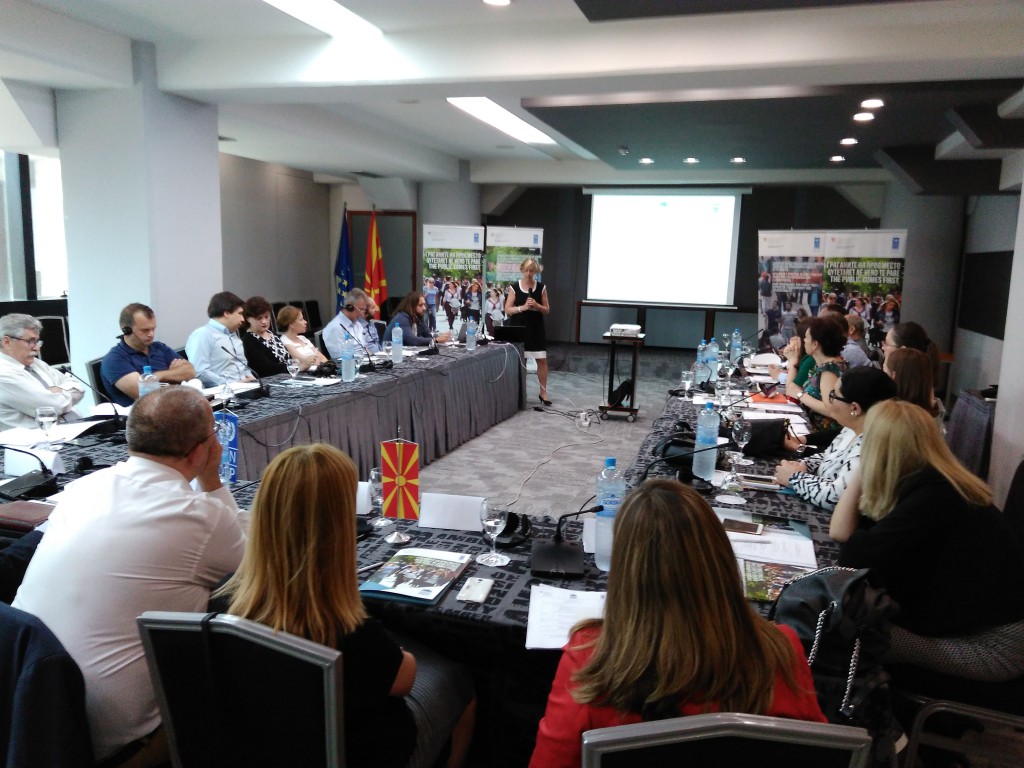The newly elected presidents of 70 of the country’s 81 municipal councils took part in “Empowering Municipal Councils: A Fresh Start for Local Democracy,” a forum aimed at improving local governance that was held in Struga on 12-13 December 2017. The event, organized by the United Nations Development Programme (UNDP) with support from the Swiss Agency for Development and Cooperation (SDC), was designed to provide a forum for the new council presidents to discuss priorities and needs with their peers at the beginning of their new mandates, while also receiving support as they undertake new functions.
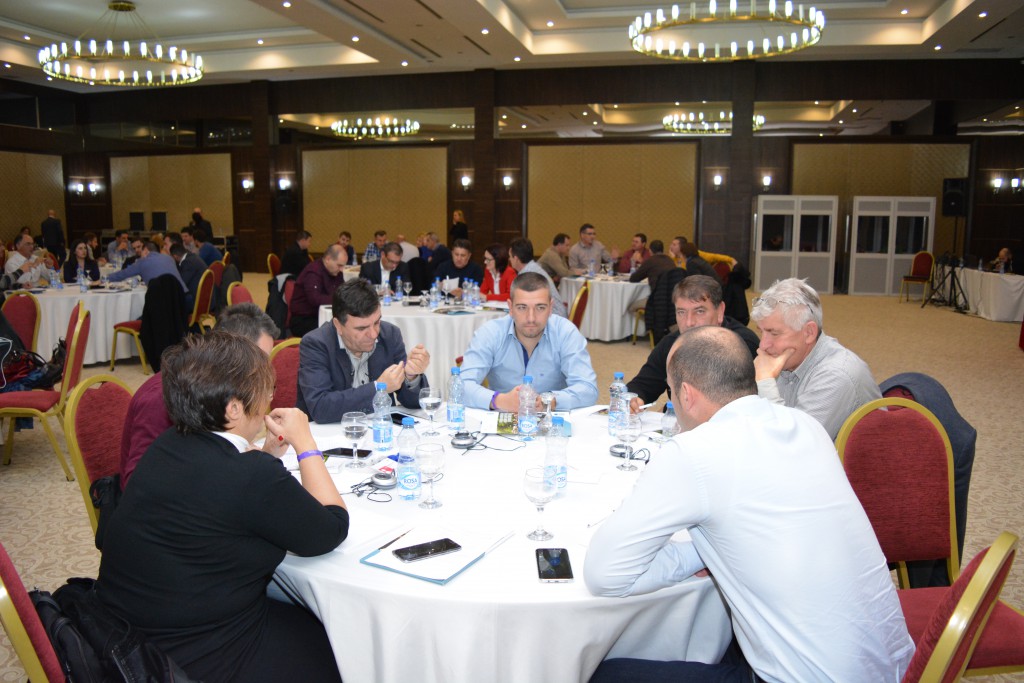
The local elections in October 2017 have resulted in sweeping changes at the municipal level. In most municipalities, new Mayors have taken office alongside municipal councils where almost all members are serving for the first time. These shifts present both challenges and opportunities at the local level.
Newly elected council members need to understand their responsibilities to their constituencies and often need to develop new skills to fulfill their new roles, particular in terms of translating citizen priorities into budgets. But, coming in fresh, they also have a chance to breathe new life into the municipal councils and help ensure that they become more effective in representing their constituents and providing oversight.
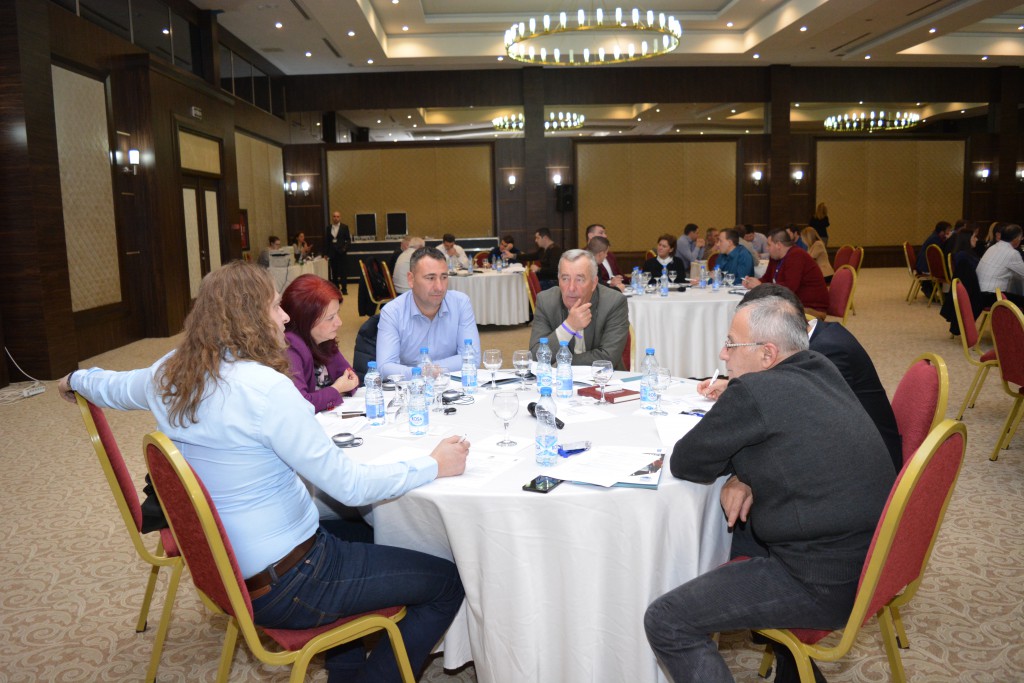
“This project comes at the right time,” said Minister of Local Self-Government Suhejl Fazliu. “The members of the councils have the biggest responsibility towards the citizens because they are the ones who vote for the budget and the spending of public funds, the urban plans, the prices of services, the functioning of the public enterprises, the kindergartens and the schools.”
The forum is a kick-off activity for “Empowering Municipal Councils,” a UNDP project to be implemented over four years with USD 3.36 million in SDC funding. It is the first project in the country to focus specifically on municipal councils as cornerstones of democracy at the local level.
“The face of local democracy in this country is traditionally that of the Mayor, while the municipal councils have taken a more passive, backseat role,” said UNDP Resident Representative Louisa Vinton. “Our aim is to provide council members with the advice, tools and training they need to become stronger partners, particularly in translating citizen priorities into the specifics of municipal budgets and in monitoring municipal spending to ensure that every single denar is spent wisely, efficiently and transparently.”
“This project is of great importance for both Switzerland as the donor and UNDP as the implementer of the project,” said Swiss Ambassador Sybille Suter Tejada. “We will work towards municipal councils increasing their effectiveness and autonomy by assuming their oversight, representation and legislative role effectively, at all stages of the budget cycle.”

As incentives for participation in project activities and to foster “learning by doing,” the project will provide grants for community projects worth USD 50,000 each to 24 municipalities over the coming four years.
The Struga forum was also attended by representatives of the Ministry of Local Self-Government, the Ministry of Finance, mayors, the Association of Local Self-Government Units (ZELS) and the Association of Finance Officers of Local Governments and Public Enterprises (AFO).
